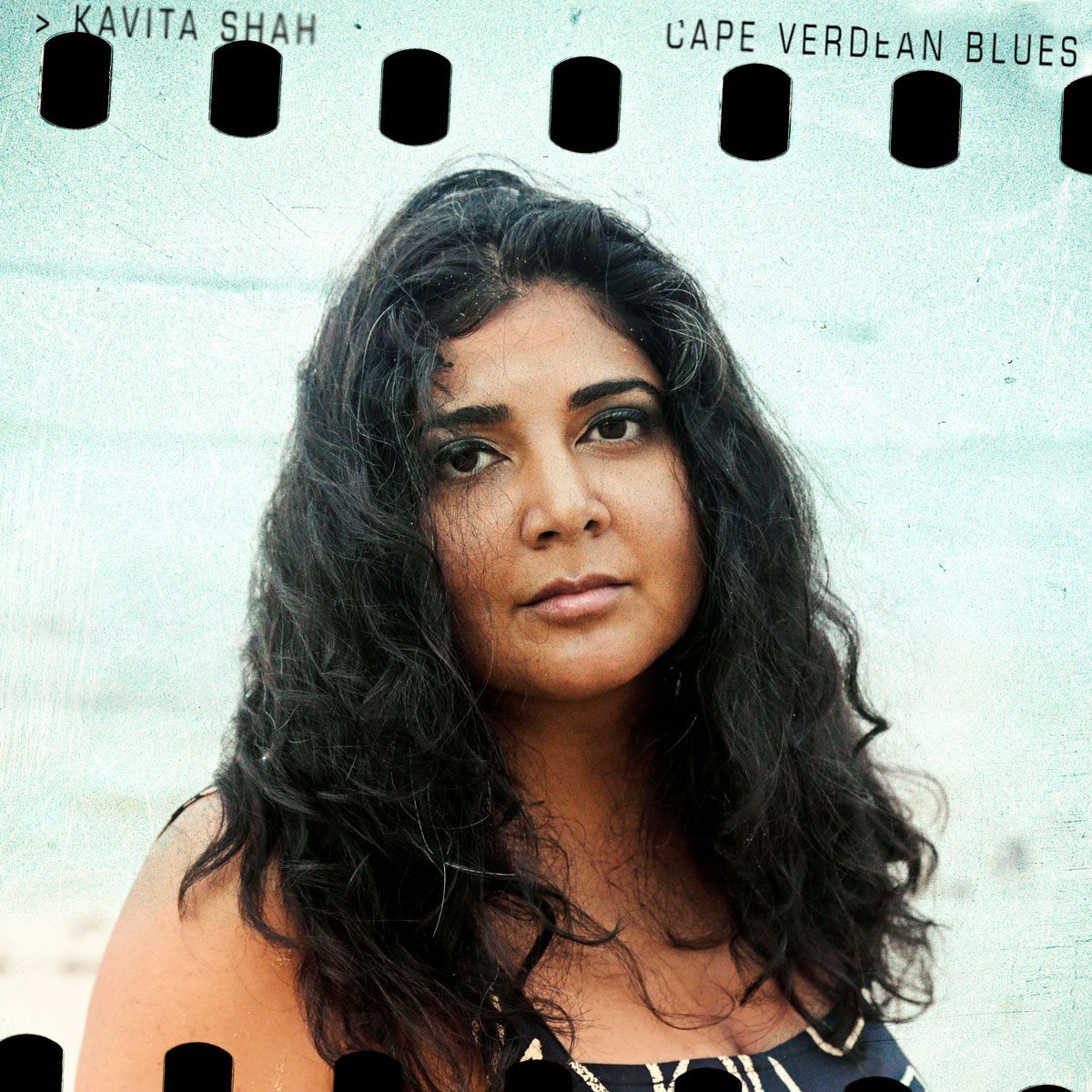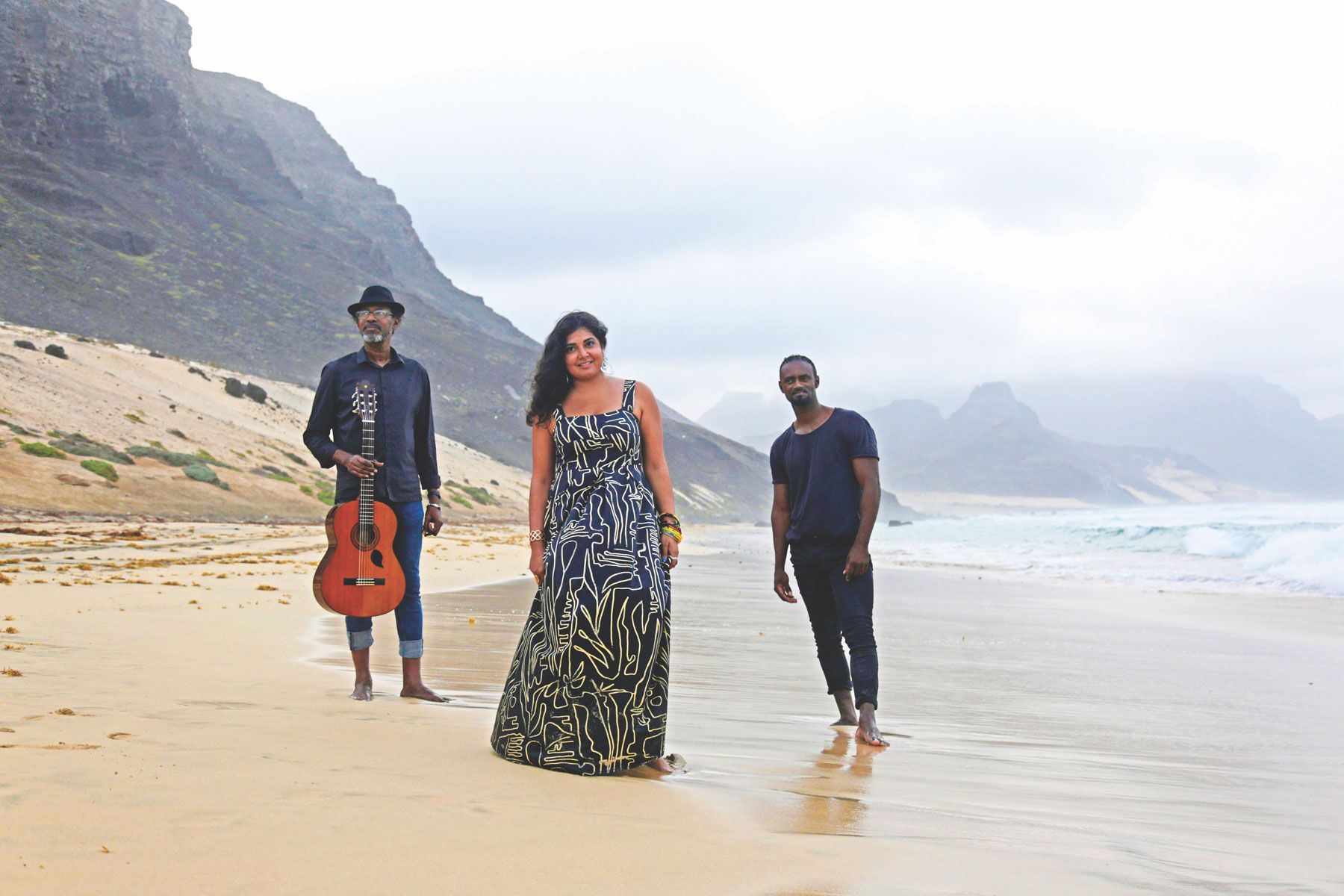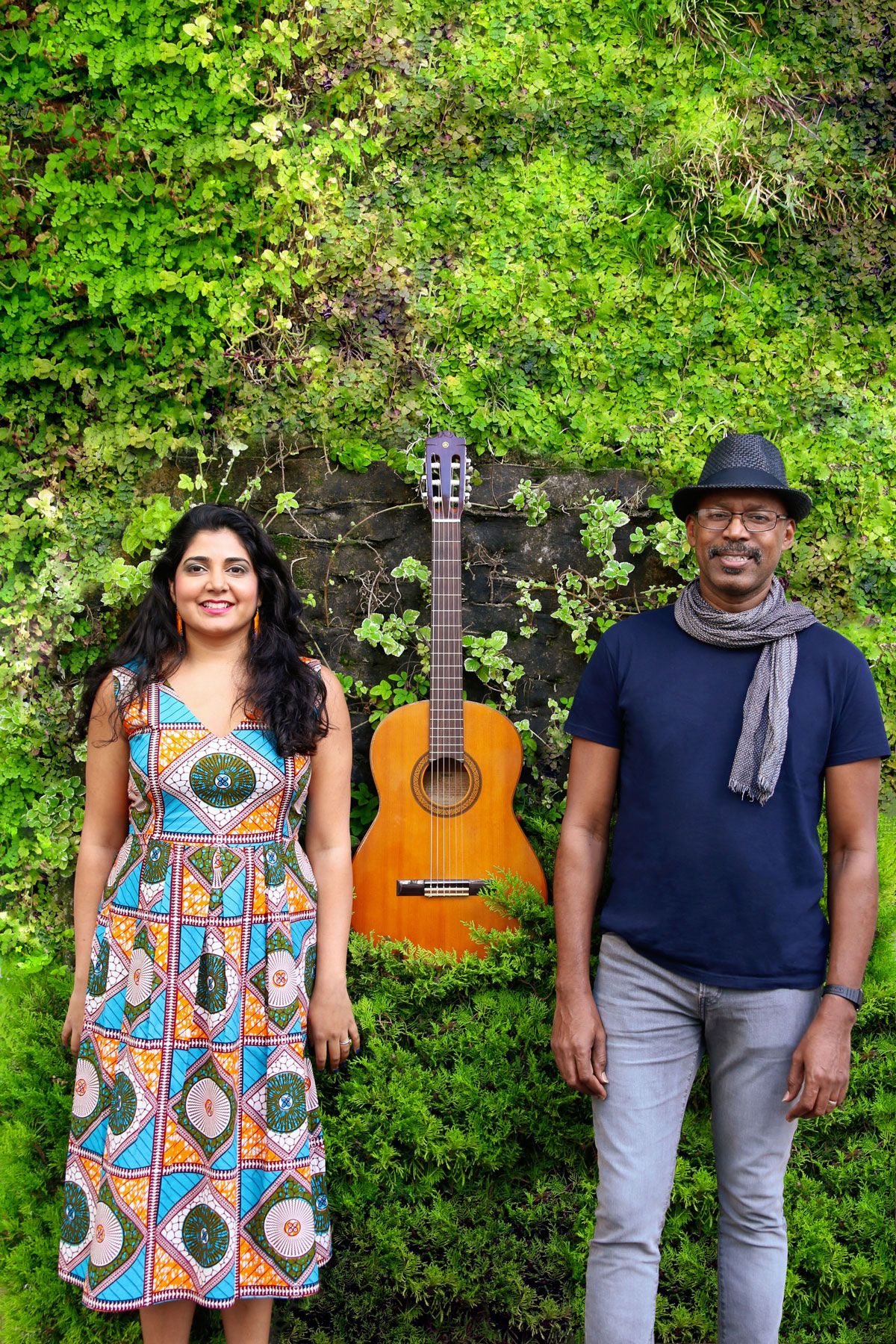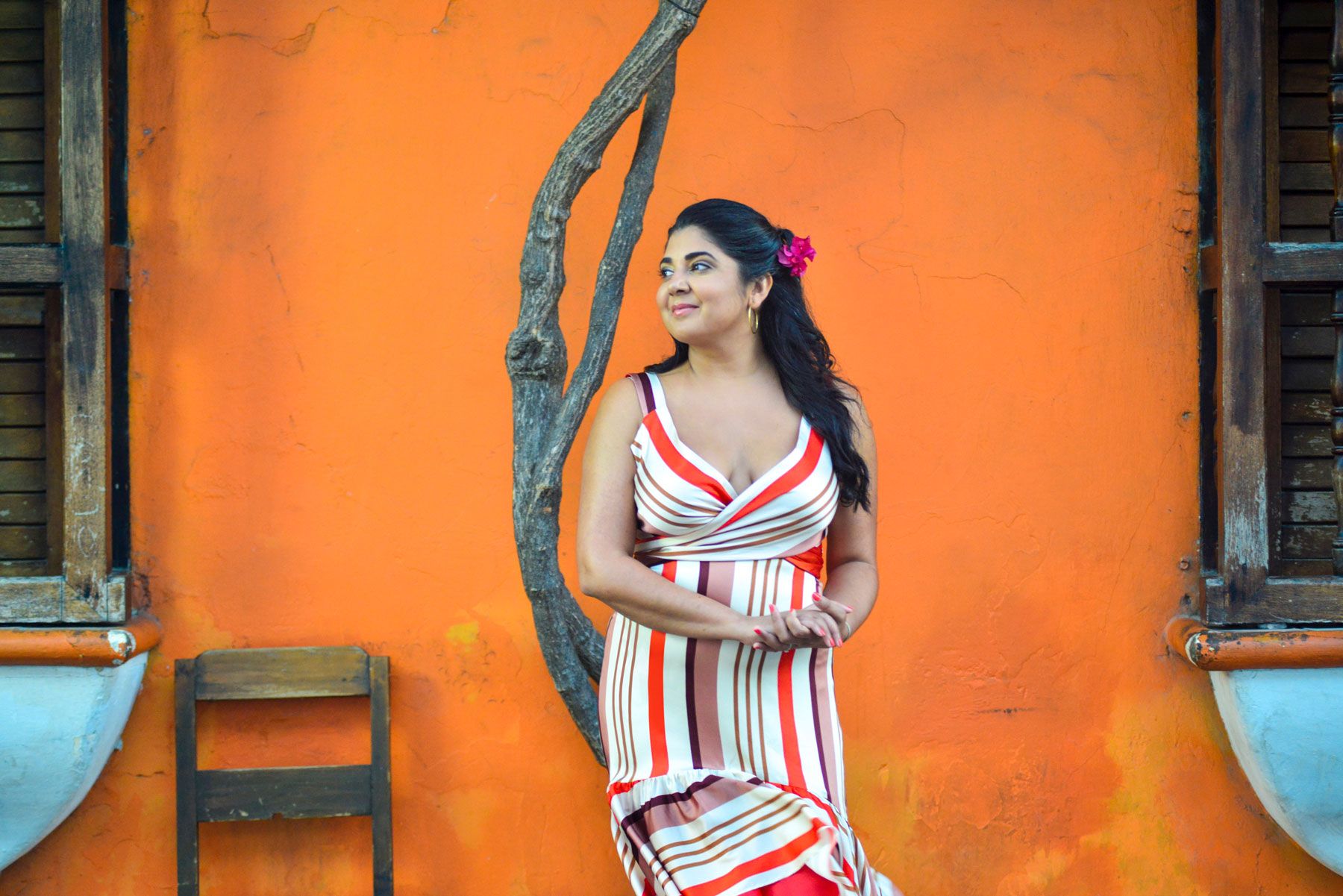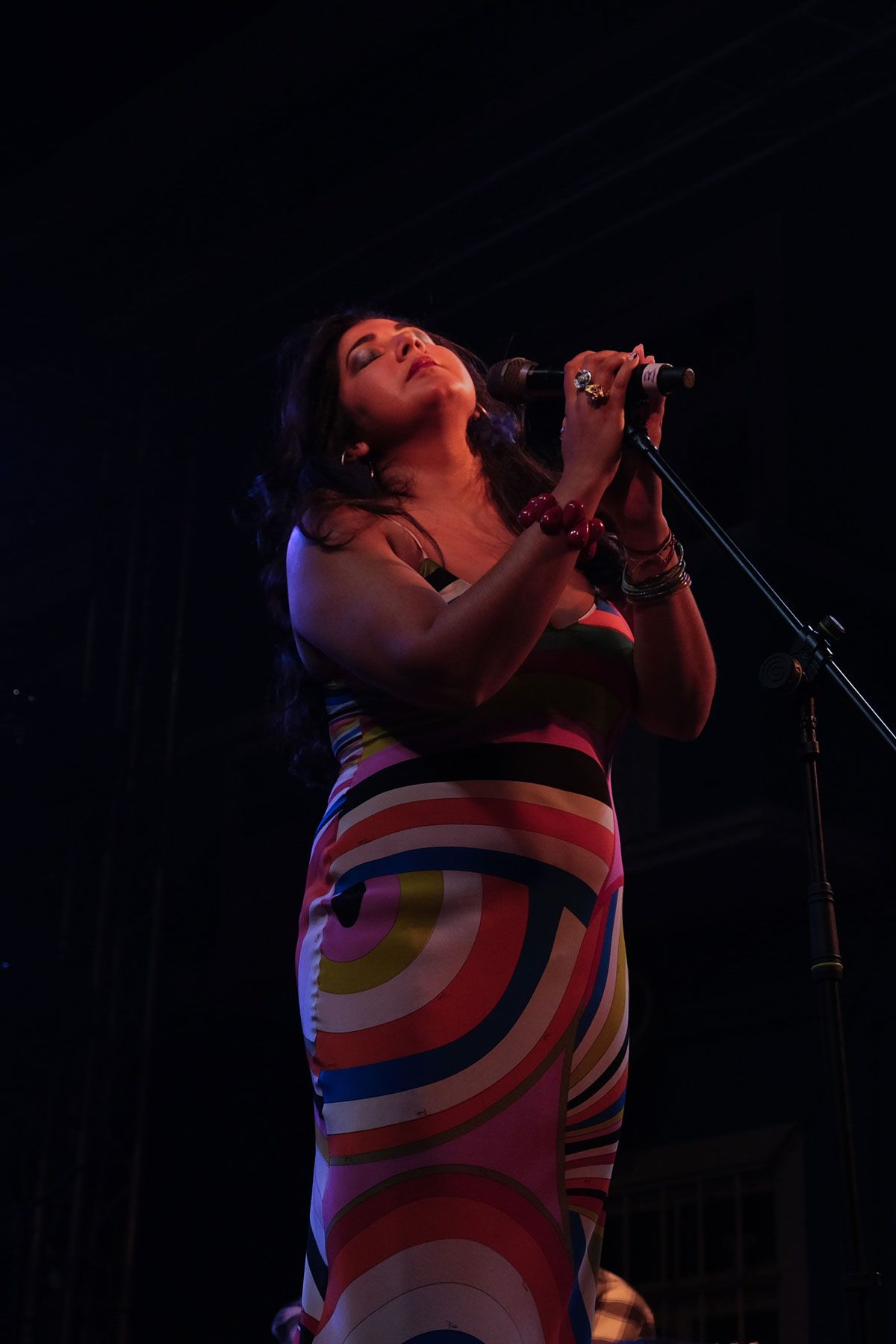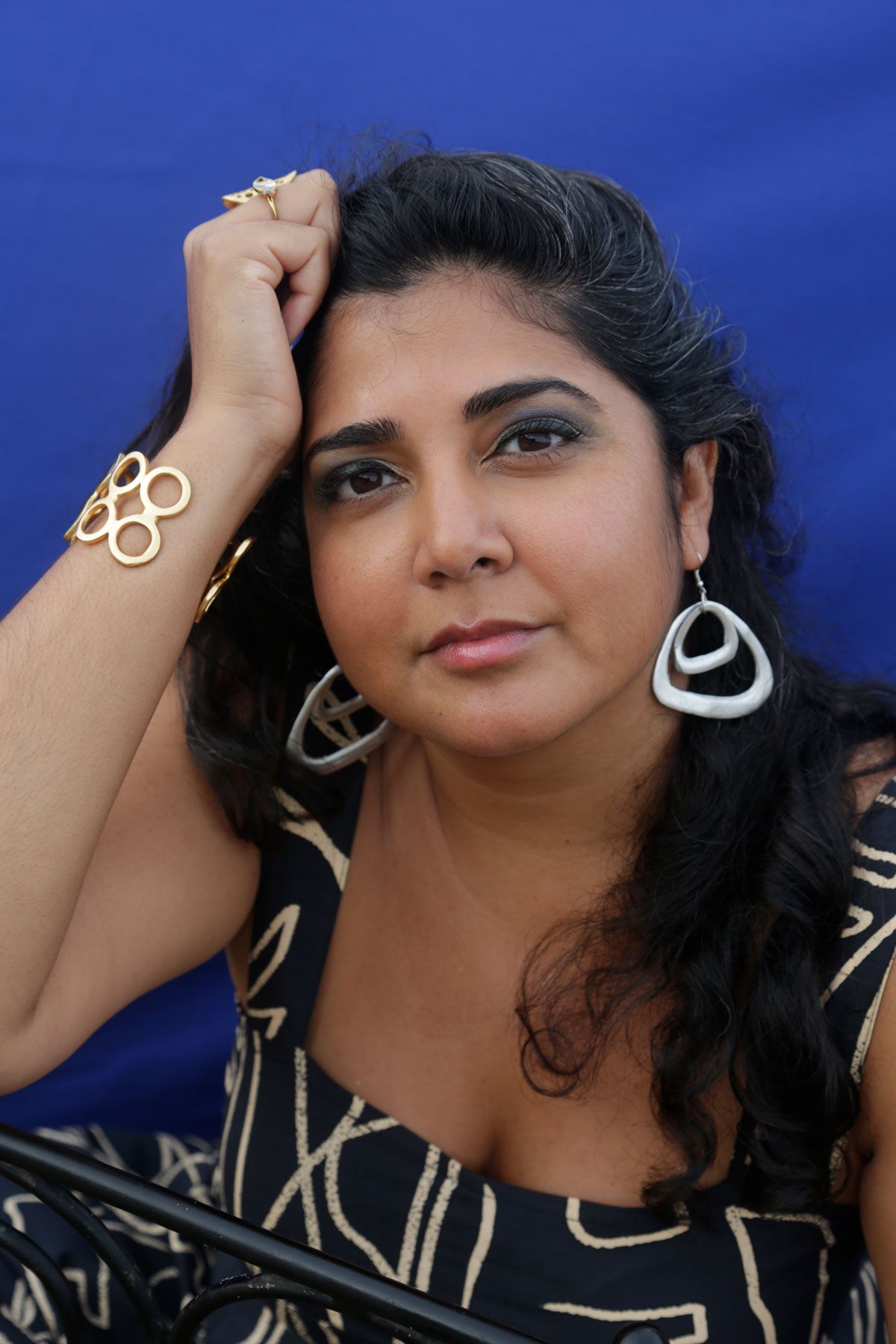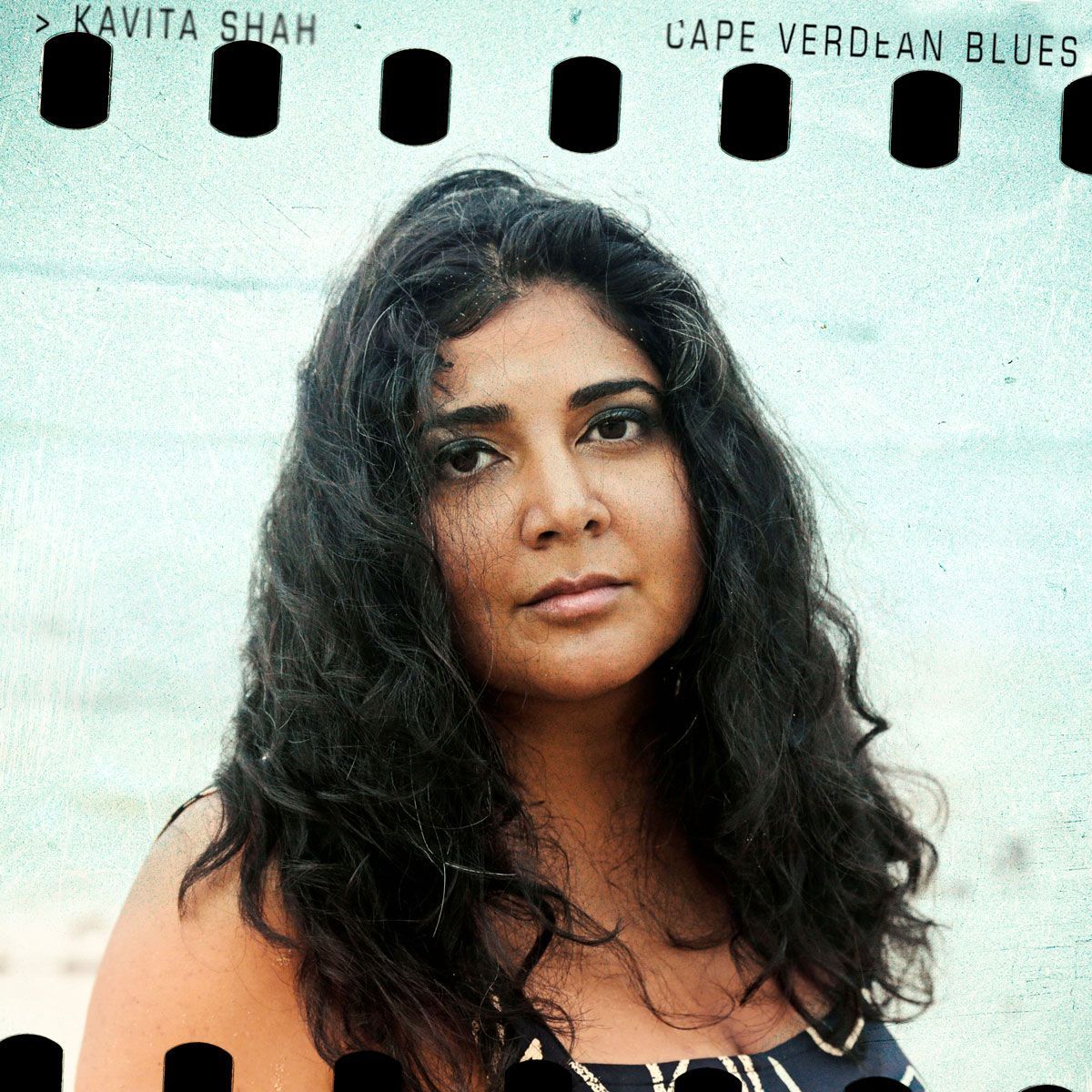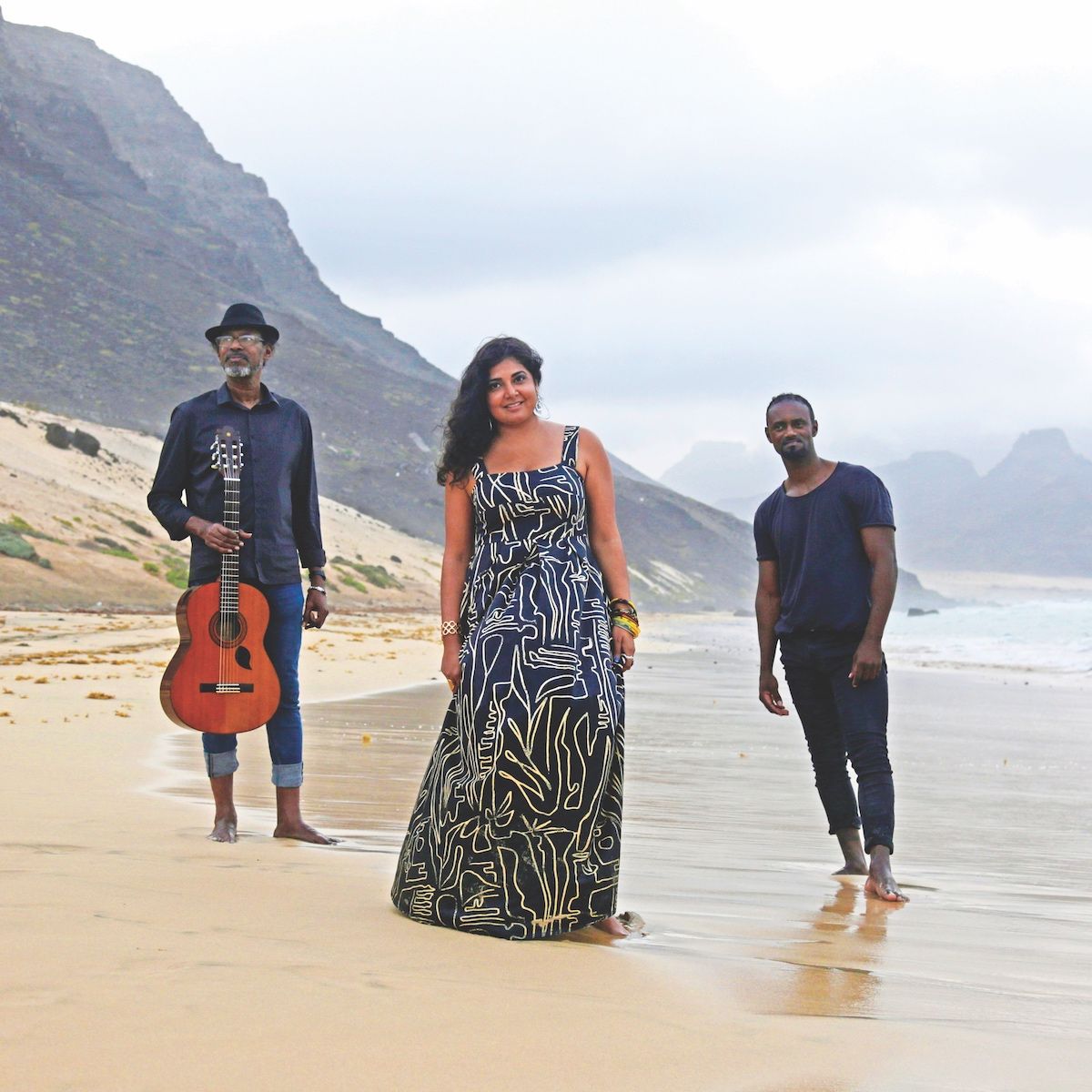Es vida sab k nhos ta vivê Parodia dia y not manxê Sen maka ma ku sabura
Angola, Angola Oi k pov sab Ami nhos ka ta matá-m N ben ku ora pa N ba nha kaminh
Es konvivensia d’es nhos vivensia Pasiensia d’un konsequensia Resistensia d’un estravagansia
Angola, Angola…
–
This joyous life that you live Partying all day and night Without worries but full of delight
Angola, Angola Oh, such a fun-loving people Friends, please don’t kill me I came with my return time set
This experience of your lifestyle Requires patience with a consequence Resistance of an extravagance
Angola, Angola…
CREDITS Music and Lyrics by Ramiro da Rosa Mendes, © Lusafrica|Africa Nostra / Editions Bertholene / Sony Music Entertainment France (SACEM)
PERSONNEL Kavita Shah (voice, vocal percussion), Rufino Almeida a.k.a. Bau (acoustic guitars, cavaquinho), Miroca Paris (percussion), Jorge Nunes (recording engineer, Le Studio Mindelo, Mindelo), Pedro Serraninho (recording engineer, Atlântico Blue Studios, Lisbon), Jeremy Loucas (recording, mixing & mastering engineer, Sear Sound Studios, New York)
